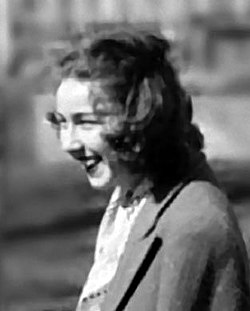Flannery O'Connor Quote
Related Quotes
She knows her timing, always knows. The time to strike or the time to starve. Her eyes as a clock, she watches she waits she learns, and in the second she blinks, she changes her mind just like that.
Anthony Liccione
Tags:
act upon, authoritative, backbone, blink, certainty, change, change like the wind, character, clock, controlled
[On Schopenhauer in Black and White] Schopenhauer's views of love are flawed. Love can't be merely an illusion of the mind to aid in procreation, but the path to redemption for an otherwise violently...
Tiffany Madison
Tags:
challenge, essence, flaw, human, human condition, human nature, humanity, illusion, instinct, instincts
About Flannery O'Connor
Mary Flannery O'Connor (March 25, 1925 – August 3, 1964) was an American novelist, short story writer, and essayist. She wrote two novels and 31 short stories, as well as a number of reviews and commentaries.
O'Connor was a Southern writer who often wrote in a sardonic Southern Gothic style. She relied heavily on regional settings and grotesque characters, often in violent situations. In her writing, an unsentimental acceptance or rejection of the limitations, imperfections or differences of these characters (whether attributed to disability, race, crime, religion or sanity) typically underpins the drama.
O'Connor's writing often reflects her Catholic faith, and frequently examines questions of morality and ethics. Her posthumously compiled Complete Stories won the 1972 U.S. National Book Award for Fiction and has been the subject of enduring praise.
O'Connor was a Southern writer who often wrote in a sardonic Southern Gothic style. She relied heavily on regional settings and grotesque characters, often in violent situations. In her writing, an unsentimental acceptance or rejection of the limitations, imperfections or differences of these characters (whether attributed to disability, race, crime, religion or sanity) typically underpins the drama.
O'Connor's writing often reflects her Catholic faith, and frequently examines questions of morality and ethics. Her posthumously compiled Complete Stories won the 1972 U.S. National Book Award for Fiction and has been the subject of enduring praise.
